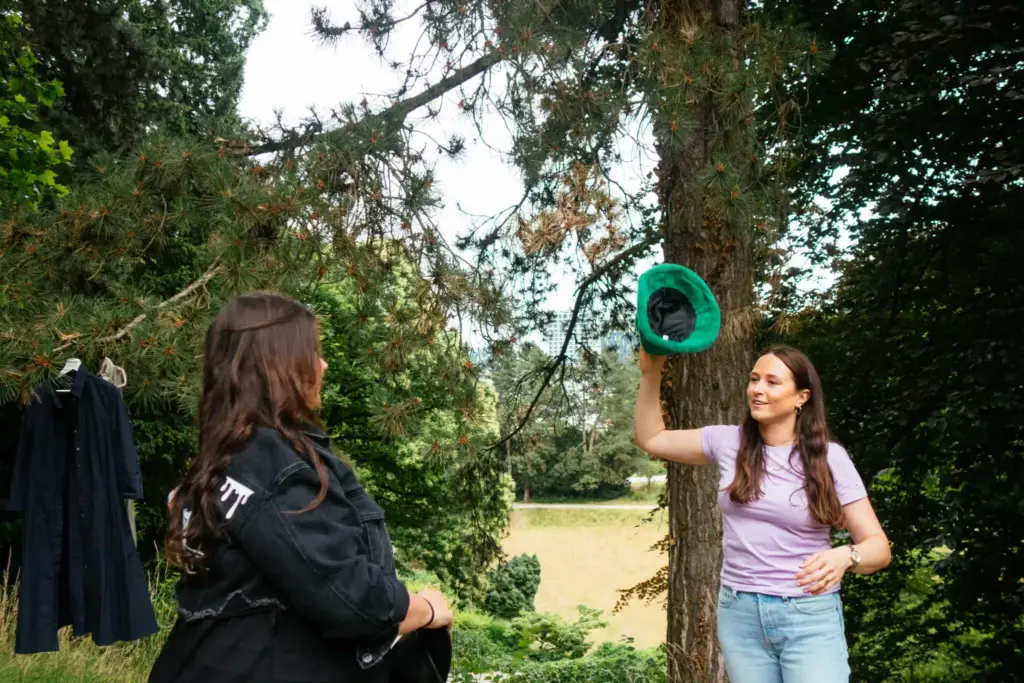WTF is communication?
Everything communicates.
With communication, it’s often a “WTF?!” before it becomes an “AHA — I get it!”
That’s completely normal.
Communication. A word everyone uses, but hardly anyone truly understands. That’s exactly what we at zflys asked ourselves — and the answer is anything but boring. Communication isn’t a simple one-way chat, not some mindless sending and receiving of messages. No, communication is a living, vibrating system that connects us, drives us, and sometimes even pushes us to the brink of frustration.
After all, many philosophers, scientists, and writers have tried to squeeze communication into a precise definition. So far, no one has succeeded.
That’s also an exciting aspect of communication: it truly makes more sense to think in terms of connection rather than division. After all, our words, sentences, and conversations are meant to connect us.

At zflys, we start from two directions of communication:

With yourself: intrapersonal communication
This describes the inner dialogue we have with ourselves. It’s a process in which we reflect on our thoughts and feelings, make decisions, and regulate our behavior. Charles Fernyhough emphasizes that self-talk is a natural and necessary human ability that helps us think about ourselves and solve problems.

With others: interpersonal communication
This refers to the exchange of information between two or more people. It includes all forms of communication involving a sender and a receiver and highlights the importance of both the content level and the relationship level. Friedemann Schulz von Thun and Paul Watzlawick emphasize that communication not only transmits information but also affects the relationship between the communication partners.
Table of contents
Enough reading.
Intrapersonal communication — the inner dialogue that controls everything
This is the conversation you have with yourself. Yes, exactly — you’re constantly talking to yourself, and that’s a good thing! This inner dialogue helps you make decisions, motivate yourself, and reflect on who you are.
Typical business examples:
- You assess your own performance and think about how you can improve.
- You weigh different options before making a decision.
- You motivate yourself, even when the day is tough.
The many faces of communication
Interpersonal communication — the exchange that shapes relationships
This is what you normally understand as communication: conversations, meetings, negotiations, presentations. Here, it’s not just about the content, but also about the relationship level — how you relate to each other, how well you understand each other, or sometimes don’t.
Typical business examples:
- Team meetings where ideas are exchanged.
- Sales conversations in which you convince customers.
- Negotiations where both sides want to win.
Why is that important?
If your inner dialogue is toxic or chaotic, your external communication will suffer. You cannot communicate clearly if you yourself are not clear.
Without good interpersonal communication, every team, every deal, and every relationship falls apart. It’s not just about what you say, but how you say it — and how the other person understands it.
Communication is everywhere
Did you know that absolutely everything communicates? Yes, really EVERYTHING. Your body language, your silence, your gaze — even the way you drink your coffee sends messages. Communication isn’t just what you say, but also what you don’t say.

Why that matters:
- You cannot not communicate. Whether you want to or not, you are constantly sending out signals.
- Communication is more than words. Facial expressions, gestures, tone of voice — all of this influences how your message is received.
- Understanding is not a one-way street. Communication is a loop, a living cycle of sending, listening, understanding, and responding.
If you don’t internalize this, you will keep running into communication barriers — in your team, with customers, or even with yourself.
So this is communication…
EUREKA! Do you have questions?
What is communication?
Communication is the process of exchanging information and meanings between people through a shared system of symbols, signs, or behaviors. Better communication with yourself leads to better communication with others — simple concept, big impact.
How can I improve my communication skills?
Why invest in communication now?
Takeaways

Let’s be honest: most companies and people communicate poorly. Period. Why? Because they see communication as an annoying duty, a means to an end, or something you just “kind of do.” But communication isn’t a side job, it’s the engine of your success.


